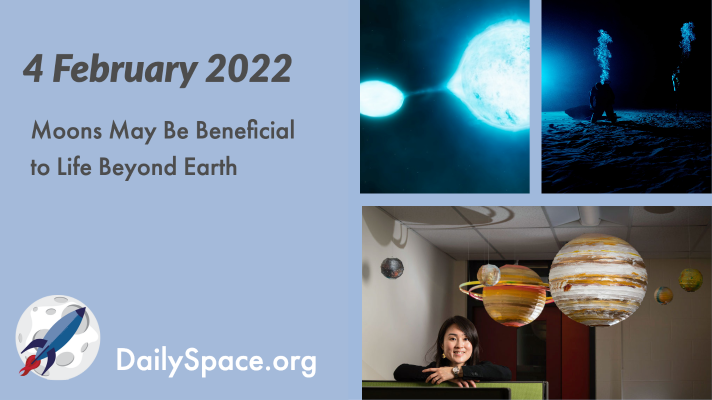
Feb 5, 2022 | Astrobiology, Crewed Space, Daily Space, Exoplanets, Moon, Rockets, Sky Watching, Spacecraft, SpaceX, Starlink, Stars, Supermassive Black Holes, Uranus
New simulations find that to form a moon with a similar size ratio to our own system, certain types of planets are needed. And that type of moon-planet system could then be beneficial to the rise of life on the planet. Plus, a Starlink launch, puffy planets, and training astronauts underwater for spacewalks.
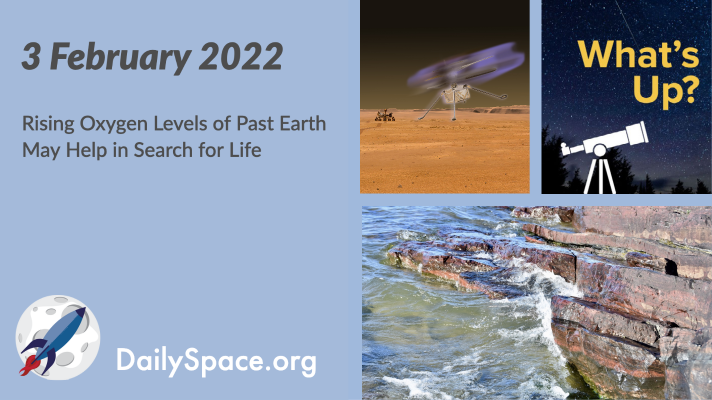
Feb 4, 2022 | Asteroids, Crewed Space, Daily Space, Earth, ESA, Jupiter, Mars, Moon, Rockets, Rovers, Sky Watching, SpaceX, Uranus
Scientists analyzed iron-rich sedimentary rocks and estimated the amount of oxygen present in the atmosphere when those rocks formed, finding low levels of oxygen and giving insight into a potential biosignature for life beyond Earth. Plus, controlling robots from space, a SpaceX launch, and this week’s What’s Up.
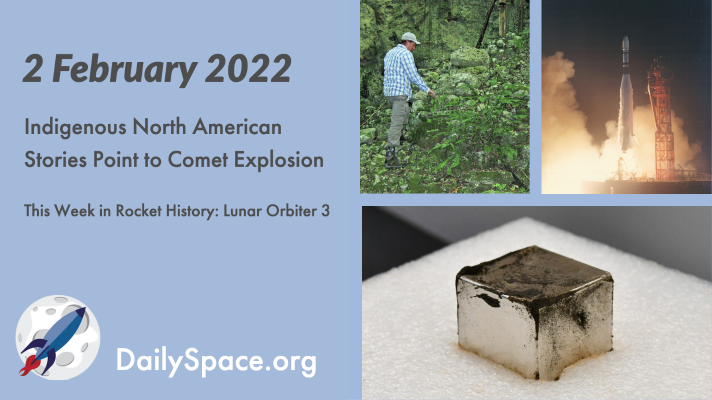
Feb 3, 2022 | Asteroids, Comets, Daily Space, Earth, Exoplanets, Moon, Random Space Fact, Rockets, Space History, Spacecraft, White Dwarfs
By collecting and analyzing stories from a variety of indigenous cultures in North America, researchers find evidence for a mid-air explosion of a comet or asteroid, similar to the Tunguska event. Plus, a new Trojan for Earth, volcanoes and dinosaurs, ancient Mexican cacao groves, and this week in rocket history is Lunar Orbiter 3.
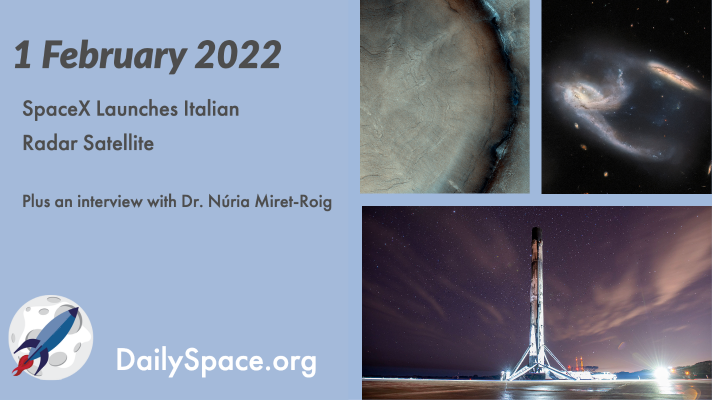
Feb 2, 2022 | Crewed Space, Daily Space, Exoplanets, Galaxies, Guest Interview, Mars, Nebulae, Rockets, Science, Spacecraft, SpaceX, Star Forming Region
After several weather-related (and one cruise ship-related) delays, SpaceX finally launched the COSMO-SkyMed Second Generation Flight 2 (CSG-2) satellite for the Italian government. Plus, some beautiful images to start your week and an interview with Dr. Núria Miret-Roig about free-floating planets.

Jan 27, 2022 | Astrobiology, Crewed Space, Daily Space, Earth, Milky Way, Physics, Rockets, Space China, Space History, Spacecraft
For decades, scientists have been trying to work out just how the Earth got all its water, and the prevailing theory was that comets and asteroids brought it, and we have evidence for that mechanic; however, a new hypothesis has provided evidence that the water was already here, locked away in hydrous minerals in a very iron-poor core. Plus, magnetic fields, subatomic particles, life on the ocean floor, a geology mystery solved, and this week in rocket history covers a space shuttle mission with some really neat science.
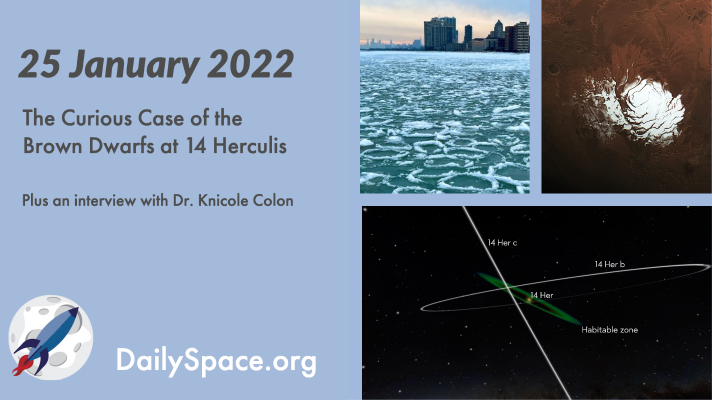
Jan 26, 2022 | Brown Dwarf, Daily Space, Earth, Exoplanets, Guest Interview, JWST, Mars, Opportunity, Rockets, Spacecraft, SpaceX
A dynamical analysis of the 14 Herculis system has revealed the existence of two brown dwarf planets orbiting in completely misaligned, eccentric orbits. Plus, weird ice in Chicago, the ongoing debate about liquid water on Mars, one rocket goes up while a capsule comes down, and we interview Dr. Knicole Colon from the JWST mission.








 We record most shows live, on Twitch. Follow us today to get alerts when we go live.
We record most shows live, on Twitch. Follow us today to get alerts when we go live.